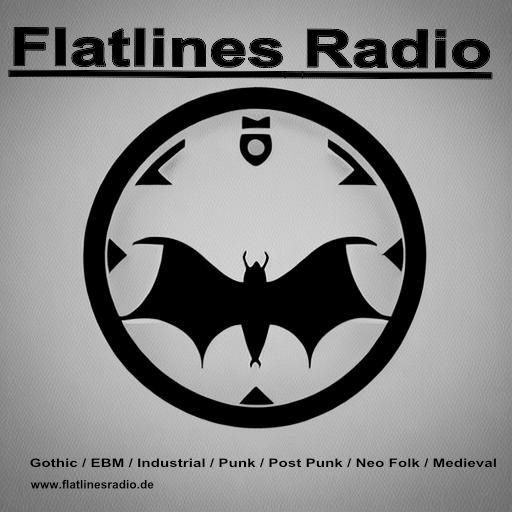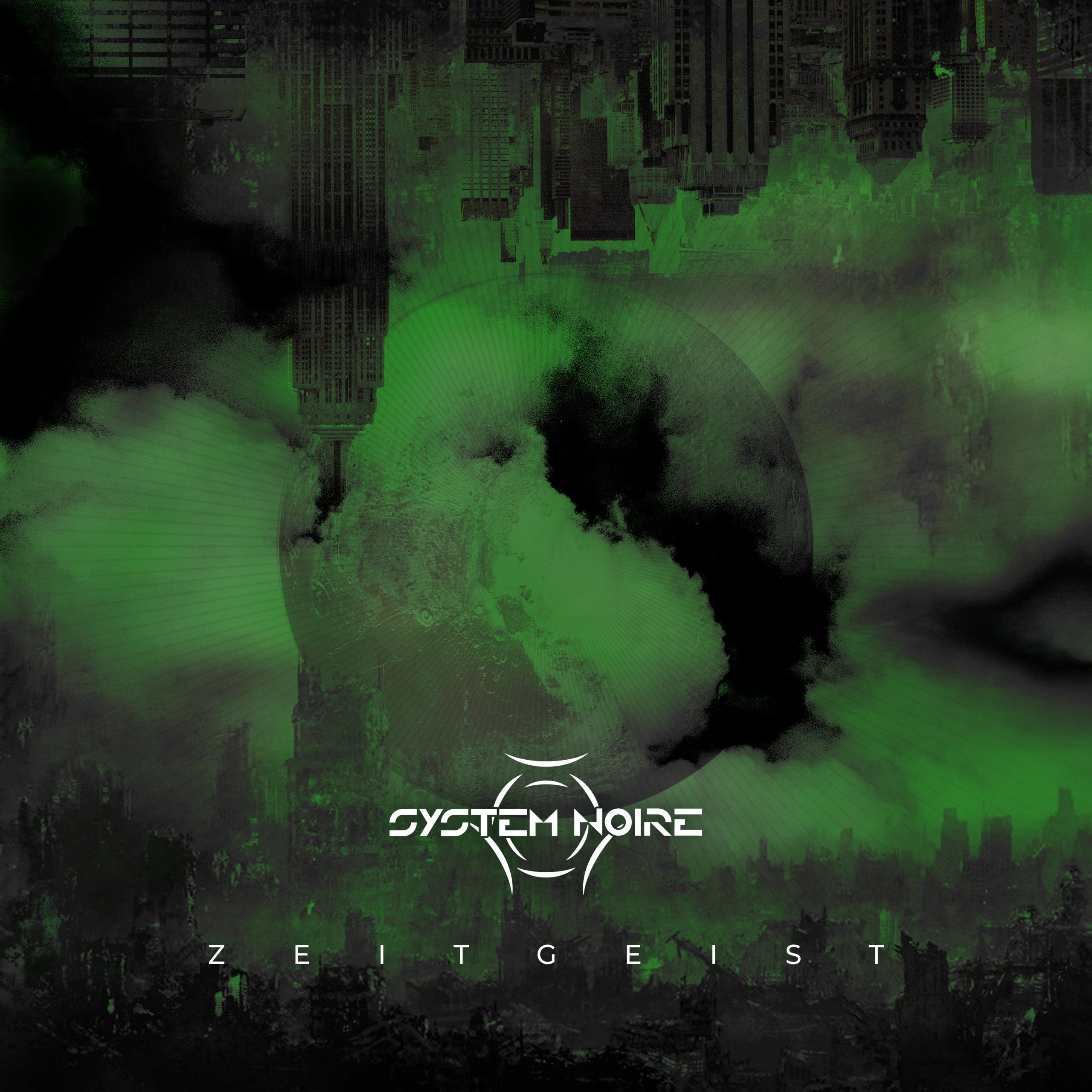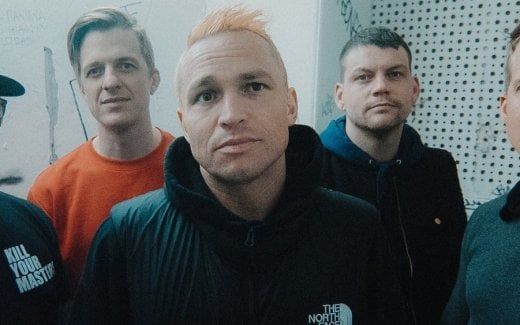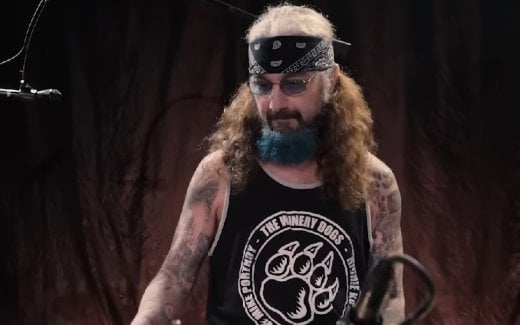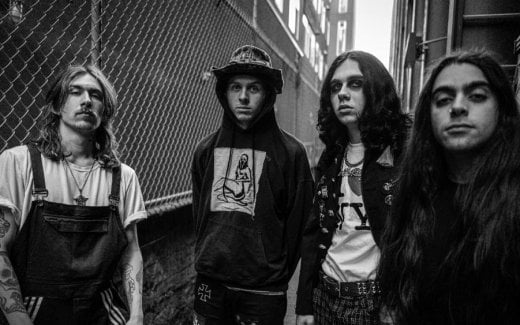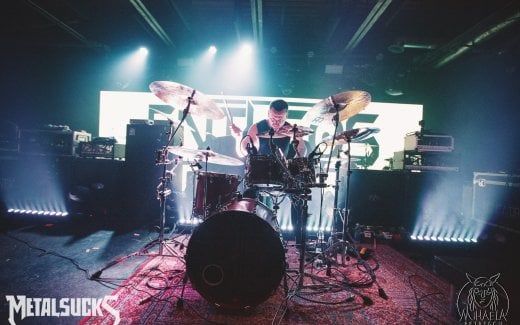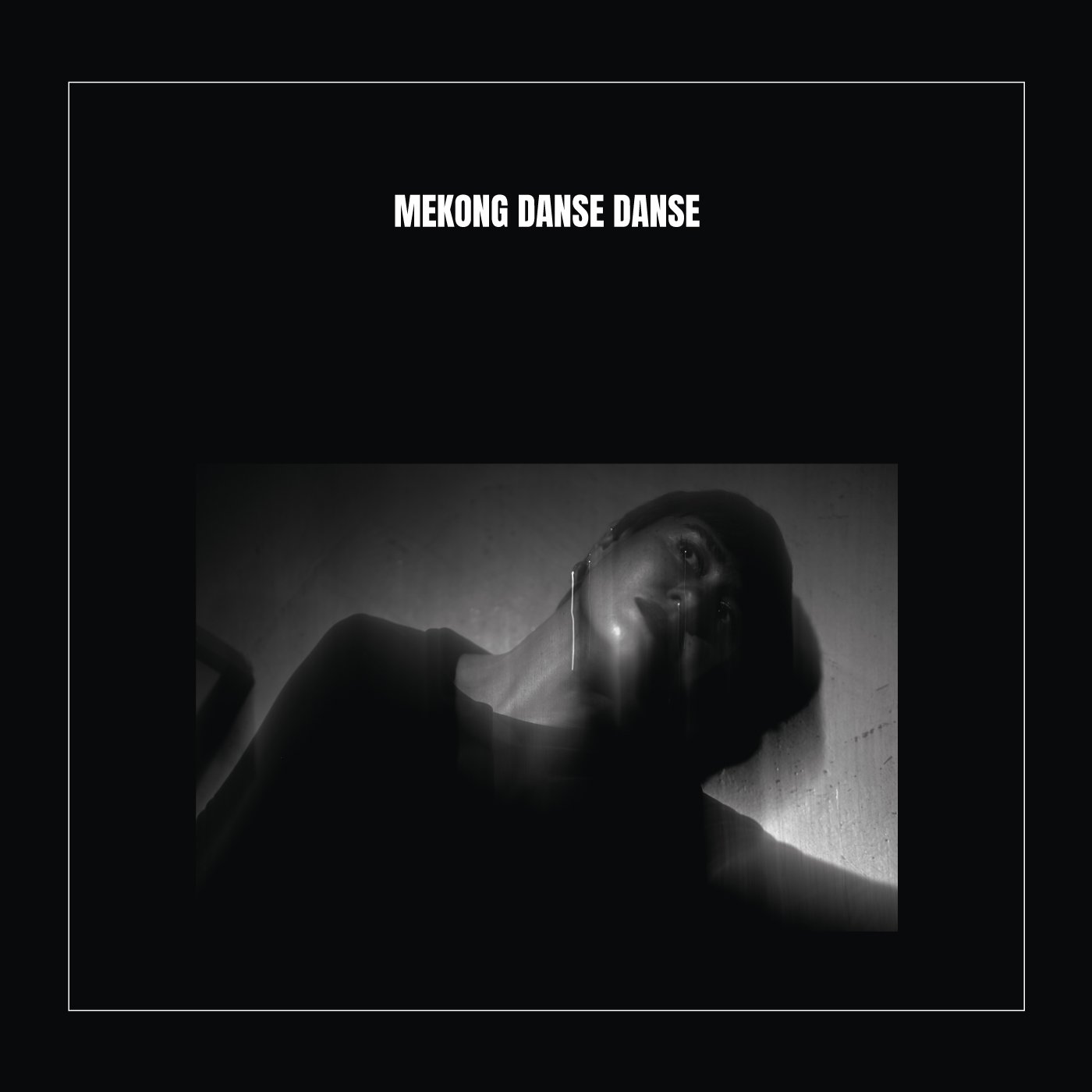
Follow us on social media
Listen to Krakow-based Post-Punk Project Mekong’s New Album “Danse Danse” — Plus Interview
Follow us on social media
We succumb tonight
It’s the funeral of hearts
This misery will vanish tonight
Mekong is the brainchild of a mysterious Portuguese expat in Krakow, serving up a concoction of dark post-punk and a sprinkle of goth. This one-man show manages to deliver haunting tunes powered by beefy bass lines, dreamy guitar riffs, and the kind of synths that could make a grown man sigh.
This blend is a call from the heart of one particularly contemplative fellow holed up in Poland, tying together minimalism with a punch; imagine bass that walks through walls, and guitars that linger like the last guest at a party. Since dropping their first album End of the World back in 2021, Mekong has nudged its way into the dark corners of the post-punk scene, picking up nods of approval for its brooding yet unexpectedly introspective vibe.
The latest from Mekong, the concept album Danse Danse, whisks listeners away to the darker side of the dance floor. Known for stirring up the kind of tunes that stick with you like a foggy night, Mekong’s new project doubles down on the brooding vibes. This album serves as a veritable confessional booth, as Mekong continues to explore the theme of alienation, wrapping up all those chilly feelings and thoughts of disconnect in a package that’s both haunting and oddly reassuring—if your idea of reassurance comes with a side of existential angst.
Hunger Strike kicks off the album with a deep dive into emotional hide-and-seek. Here’s someone wrapping up their heartaches and chucking them into the back of the closet, trying to sneak back to somewhere familiar to lick their wounds. But as the truths start to show their deceitful colors, our hero decides it’s time to pack up and move on—love offerings and all.
Going Numb spins a hypnotic blend of post-punk and dark-wave into a narrative about a girl’s ultimate night out. The dance floor morphs into her temporary haven, where she loses herself to the beat, embracing a trance-like state under the disco lights. It’s a farewell waltz to the tune of melancholic synths, as she drifts towards her shadowy curtain call. Then there’s Rebellion, where emotional turmoil feels as heavy as losing a loved one. The track captures a persistent, defiant sorrow that refuses to go quietly into the night, echoing the endless struggle against the pain that grips the heart.
Hopeless keeps it simple but heavy, serving up a no-frills blend of despair and a pinch of eternal optimism. Even as it wades through the murk of tough times, there’s a stubborn dream that refuses to die and a hopeful call to come back home. In Ice Cold, we meet a young woman battling her inner ghouls in splendid isolation. As the evening stretches, she spirals into a whirlwind of chaos and risky moves, her actions a silent scream for attention in a world that just isn’t listening.
Suicide Queen dives headfirst into the emotional blender, stirring up confusion with a healthy dash of angst. As they navigate their inner darkness, there’s a whisper telling them maybe it’s time to pull the disappearing act. Meanwhile, Picture of Wrong serves up a cocktail of chaos, mixing personal battles with guilty pleasures. But here’s the kicker: amidst the mayhem, there’s a glimmer of hope—if they can just play by the rules, redemption might just be on the menu.
Danse Danse cranks up the existential jukebox for a last hurrah at the club. It’s a doomsday disco where the party-goers are too busy grooving to worry about the morrow. The song spins a night of healing hearts and final farewells, promising an escape from misery into the sweet hereafter.
Two Thumbs Down serves up a hearty dish of raw disdain with a side of cyclical chaos. As the lyrics spin round and round like a bad day on repeat, the protagonist dishes out hate with the precision of a gourmet chef. Underneath the fiery façade, there’s a deep-seated pain that whispers, “Maybe it’s time to vanish.” In essence, it’s a breakup anthem for the soul, deciding it’s last call at the heartbreak hotel.
Finally, I Reached The End wraps up the icy feel of a solo winter’s night with a bit of a shrug. With every tick of the clock, they hint that the misery’s lease is almost up, and they won’t be around to renew it. By the time the sun rises, it seems they’ll have ghosted their own gloom.
Mekong’s second LP is out now via French label Icy Cold Records on streaming, CD, and red vinyl.
Mekong spoke with Post-Punk.com about the album, their influences, and memorable moments in the band’s history.
Mekong’s sound incorporates a mix of dark post-punk and ’80s goth influences. Can you pinpoint any specific artists or tracks that inspired the haunting qualities of your music?
There’s a bunch of bands and records which I listen to quite often that, one way or another, end up influencing what I do. I could pin point a few records I couldn’t pass without at this point. A couple of classics from the early 80s like Pornography or Faith from the Cure, In the Flat Field from Bauhaus or Closer from Joy Divison. From newer stuff i can’t seem to get off Why Just Not Be Solo from Lebanon Hanover or anything from Forever Grey. Very simple, but super deep stuff.
“Danse Danse,” has been described as both minimal and powerful. How do you balance minimalism with the powerful emotions you aim to convey?
There was a point in my life where playing fast and complicated thing made my day. I was always looking for more note to add to a riff. Since I embarked on this journey with Mekong, I tend to look more for the feeling instead of the technicality of the music. A proper loose note with the right amount or reverb goes along way, literally. I was able to put aside that idea of having songs written in the most common structure of verse, chorus, verse etc. I love getting a nice bass riff, some drum pattern I find suitable and stick to it for the whole song. I do this for myself, so I’m able to do just do what I feel like in that moment.
“Danse Danse” is presented as a conceptual album focusing on a young woman’s struggle with alienation and inner turmoil. What inspired you to explore these themes?
While in my first record, End of The World, I compiled a group of songs I had written over the period of 3 years and put it together as an album, with Danse Danse I tried to give it the same feeling throughout the whole thing. I had the idea of making a film for the whole duration of the record and so, every song is part of that film. It’s the story of someone who seriously struggling with depression and addicted to all sorts of bad stuff. Some day, she decides to go out and ends up being involved in a series of bad episodes with other people around and end up killing herself that same night.
I had the whole film scripted and was ready to jump into production but I end up dropping the idea, at least for now, due to very long delays with the people I was going to do it with. The album has been ready since April 2023 and is only now seeing the light of the day due to this.
I am not sure where the idea came from. I guess I was just looking for story that was compelling but at the same time easy to enough to produce. We see more and more people with mental issues these days. Maybe there’s not so much stigma around it anymore and people just speak about it openly now. It is not meant to be any kind of warning or to create any awareness. It’s just a story.
How have these cultural and geographical shifts after moving from Portugal to Poland impacted your music?
I don’t think moving to Poland had any influence in my music, at least geographically speaking. When I was in Portugal I always played with bands but was doing a very different style of music. Back then I was playing mostly hard blues rock. But I always listened to many kids of music.
When I settled in Poland and was able to grab some gear, having a band and having rehearsals all the time and whatnot was not what I was looking for. I wanted to be by myself, do thing at my own pace and as I want. I could say that the greyness of Poland for a big part of the year could have something to do with it, but I think that the idea of making this kind of music was already in my head before I ever lived here.
What has been your most memorable live performance with Mekong so far?
This is a studio project, at least so far. Of course I though of the idea of putting a band together and play a few shows but for the time being, it’s not something I plan on doing in the near future. I do have plans for a live recording though.
Looking ahead, what are some goals or aspirations you have for Mekong? Are there any collaborations, live shows, or new territories you aim to explore in the coming years?
I started writing my next album. I have a few songs lined up already so releasing more records is definitely something I intend to do.
I would also like to explore more the visual part of the music. I would like to be able to do bigger productions for the videos so that is something I have in mind for the future as well. The first two singles of Danse Danse had videos done by a very talented videographer called Piotr Piatek(Pedro Viernes). We have a new video on the works for a third single to come out from Danse Danse and I hope we will keep on working in the future.
Another project, besides the new records and bigger video productions, is to record a live performance. I have been playing with the idea of taking 5 or 6 songs, and record a live concert, without any audience. I’m not sure if or when this will ever happen as with everything. There is a couple of artists/bands I would like to do some stuff with. Just a song. Why not?
Follow Mekong:

The post Listen to Krakow-based Post-Punk Project Mekong’s New Album “Danse Danse” — Plus Interview appeared first on Post-Punk.com.
